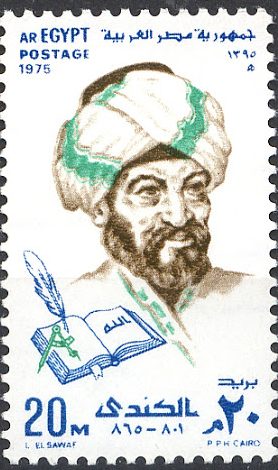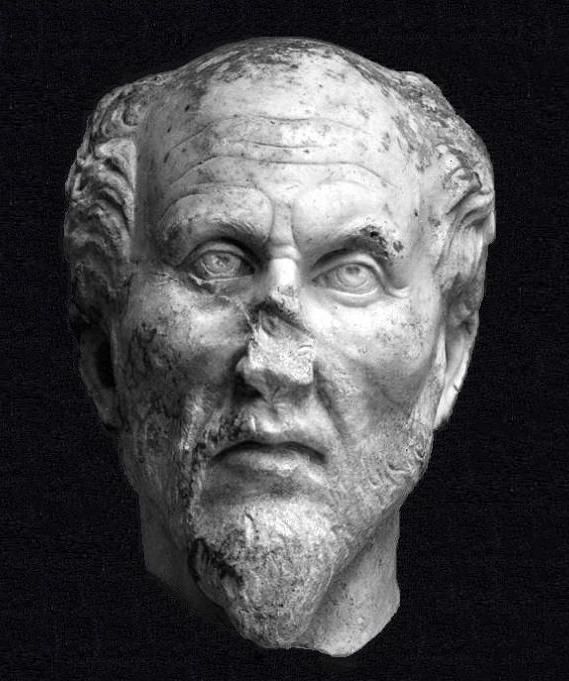Fitzroy Morrissey
Falsafa, the tradition of Greco-Arabic philosophy, was born with the Translation Movement, the process by which, between roughly 750 and 1000 AD, almost all the extant works of secular Greek literature were translated into Arabic.
The Translation Movement was instigated by the ‘Abbasid caliphs of Baghdad, who, as Dimitri Gutas has shown, patronized the translations as a way of showing themselves to be the heirs to the Sasanian Empire of Iran and the superiors of their Christian rivals in Byzantium.
Crucial to the process were Christian translators. Trilingual in Greek, Syriac, and Arabic, they rendered the entire Aristotelian philosophical corpus, the Neoplatonic writings of Plotinus (AD 204–70) and Proclus (412–85), and the medical works of Galen (129–216) – as well as books on astrology, alchemy, mathematics, and much else – into the language of the Qur’an. These translations enabled the creation of falsafa as an independent intellectual tradition, practised by Muslims, Christians, and Jews writing in Arabic (and later in Persian).

The first great faylasuf – as those who practised falsafa were known – was al-Kindi (c. 800–70). Known as the “philosopher of the Arabs”, his most famous work is On Metaphysics. Influenced by the Arabic paraphrases of the Enneads of Plotinus and Proclus’ Elements of Theology produced by his circle, he identified God as “the true One” (al-wāḥid al-ḥaqq), about whom almost nothing could be said or known, and, drawing on arguments of the sixth-century Christian philosopher John Philoponus, argued against the Aristotelian thesis that the world was eternal in favour of monotheistic creation ex nihilo.
In the same book, al-Kindi also offered a spirited defence of the validity of falsafa against those who doubted its compatibility with revealed religion. Philosophy, al-Kindi asserted, was an exercise in discovering – and acting in accordance with – the truth (again, al-ḥaqq). As he wrote:
We must not be ashamed to admire the truth or to acquire it, from wherever it comes. Even if it should come from far-flung nations and foreign peoples, there is for the student of truth nothing more important than the truth.
Al-Kindi developed his ideas about the nature and purpose of philosophy in another book, titled On the Definitions and Descriptions of Things. “The ancients (al-qudamā’),” he explained, had defined philosophy in six ways:
-
- As “love of wisdom”
- As “assimilation to the actions of God” (at-tashabbuh bi-af‘āl Allāh)
- As “being mindful of death”
- As the “art of arts and science of sciences”
- As “man’s knowing himself” (ma‘rifat al-insān nafsahu)
- And as “the knowledge of the eternal, universal things”
As al-Kindi himself acknowledged, the history of these definitions went back to Classical antiquity. Take the second definition, perhaps the most striking of the six – the idea that philosophy is concerned with assimilating one’s actions to those of God.

This idea originates with Plato. In a much-discussed passage of the Theaetetus, Plato’s main dialogue on epistemology, Socrates declares:
Therefore we ought to fly away from earth to heaven as quickly as we can; and to fly away is to become like God (ὁμοίωσις θεῷ, homoiōsis theoi), as far as this is possible; and to become like him, is to become holy, just, and wise.
This notion was rooted in Plato’s psychology. According to the theory set out in Book 4 of the Republic, the human soul is divided into three parts: (i) a rational part, through which humans think, (ii) a “spirited” part, which helps reason restrain the desires of (iii) the “appetitive” part, which is the source of their passion for food, drink, and sex. By cultivating the rational part of their souls and avoiding the passions connected to the appetitive soul, Plato explains in the concluding pages of the Timaeus, humans can partake of divinity – meaning that they could share in the immortality and virtue of the gods.
The reason for this is that, for Plato and his followers, the rational soul is itself “divine” (in the sense outlined just above). As Plato’s student Aristotle put it in Book 10 of the Nicomachean Ethics, “If reason is divine, then, in comparison with man, the life according to it is divine in comparison with human life.”
This idea was given its fullest development in the third century AD in the work of Plotinus, whose Neoplatonist philosophy sought to reconcile the thought of Plato and Aristotle. In On Virtues, the second treatise of the first Ennead, Plotinus asserts that the state of the soul which has fully cast off the passions of the body and is totally ruled by reason can be described as “likeness to God” (homoiōsis theoi).

This was a state that Plotinus sought to cultivate in his own life. “Our concern,” he wrote in the same treatise, “is not merely to be sinless but to be (a) God (θεὸν εἶναι, theon einai).” As his student Porphyry wrote in the Life of Plotinus, “For Plotinus, the goal and the end consisted of union with the supreme deity and the process of growing closer to him.”
This view of philosophy was adopted by the Neoplatonic commentators of the late-antique Alexandrian school, who, in their commentaries on the Isagoge, Porphyry’s introduction to the logical works of Aristotle, set out the various definitions of philosophy. As Samuel Stern has indicated, these definitions probably served as the source for al-Kindi’s own definitions of philosophy.
From al-Kindi, the idea of philosophy as a quest to become “God-like” spread far and wide through the Islamic world. In the tenth century, the idea is found in Isaac Israeli (c. 855–955), a Jewish philosopher who lived in Kairouan in modern-day Tunisia; in the Epistles of the Brethren of Purity, a philosophical-scientific encyclopaedia composed in the Iraqi city of Basra by a secret society affiliated to the minority Ismaili branch of Shia Islam; and in al-Farabi (c. 870–950), the philosopher revered in the Islamic rationalist tradition as ‘the Second Teacher’ after Aristotle. Later, the idea was taken into Sufism, the ascetic-mystical tradition in Islam, and connected to the Hadith (saying of the Prophet) in which Muhammad instructed his followers to “take on the attributes of God” (takhallaqū bi-akhlāq allāh).

Other ancient ideas adopted by al-Kindi became similarly widespread in the falsafa and Sufi traditions. The notion of philosophy as “knowing oneself” – which originates in the famous maxim said to have been inscribed on the Temple of Apollo at Delphi (γνῶθι σεαυτόν, gnōthi seauton, “Know thyself”) – was likewise legitimized through the Hadith: “Whoever knows himself knows his Lord” (man ‘arafa nafsahu fa-qad ‘arafa rabbahu), the Prophet was believed to have said. As Alexander Altmann has shown, Muslim philosophers connected it to the Biblical idea (also found in the Hadith) that humans are made in the image of God (imago dei) (Genesis 1:26-27) as well as to the idea, found already in the pre-Socratic atomist philosopher Democritus (c. 460–370 BC) and widespread in many ancient and medieval philosophical systems, of the human being as a microcosm of the universe.
Of course, when the Muslim and Jewish philosophers spoke of becoming “like God”, they meant the perfectly good, omniscient and omnipotent creator God of their monotheistic religions – not the pagan conceptions of the ancient Greeks. To understand Islamic philosophy, then, we have to appreciate that it is, in fact, Islamic: as we have seen, Muslim philosophers like al-Kindi tended to reject ancient ideas, like the Aristotelian thesis of the eternity of the world, when they clashed with scriptural dogmas. At the same time, the adoption by al-Kindi and his successors of the ideas of Plato, Aristotle, and the Neoplatonists about the nature of philosophy highlights the extent to which the medieval Islamic world participated in the philosophical culture of ancient Greece.

Therefore, as Garth Fowden writes in Before and After Muhammad, “Islam did not, as has been imagined, kill Antiquity, but grew out of it and even developed some of its major preoccupations.” Ultimately, what this means is that, just as students of Islam need to be cognizant of the Greek (and Biblical) background of Islamic thought, so too are Classicists likely to benefit from familiarizing themselves with Islamic intellectual history.

Fitzroy Morrissey is a Fellow of All Souls College, Oxford. He will publish A Short History of Islamic Thought with Head of Zeus later this year.
Further Reading
For more on falsafa, see Peter Adamson’s History of Philosophy Without Any Gaps podcast and books and the entries on the various thinkers named above in the Stanford Encyclopedia of Philosophy.